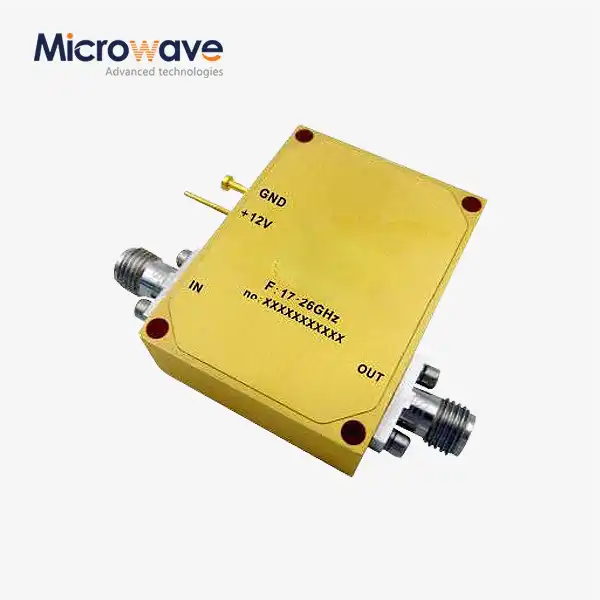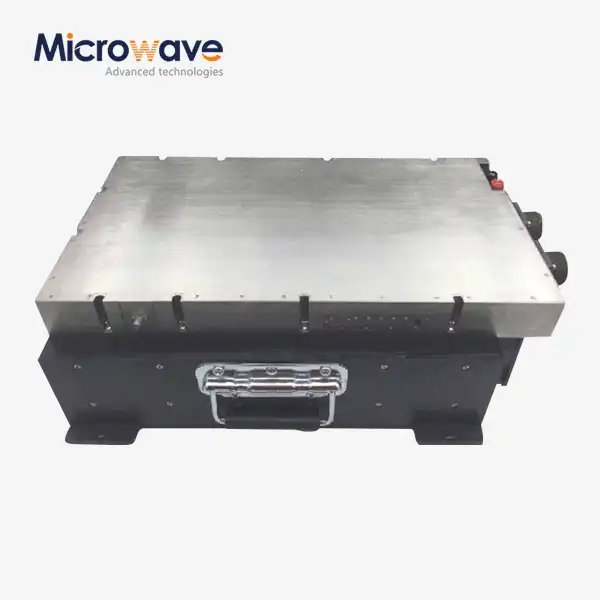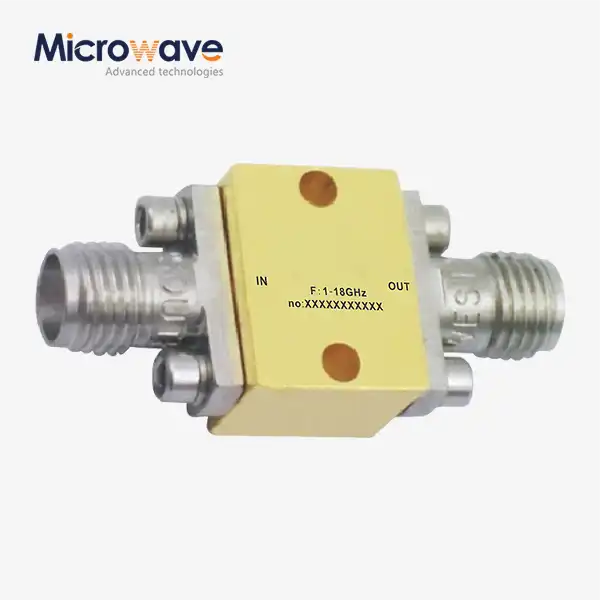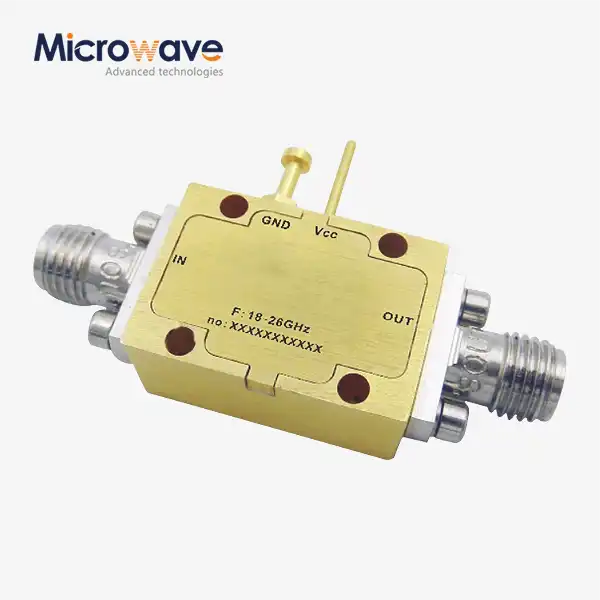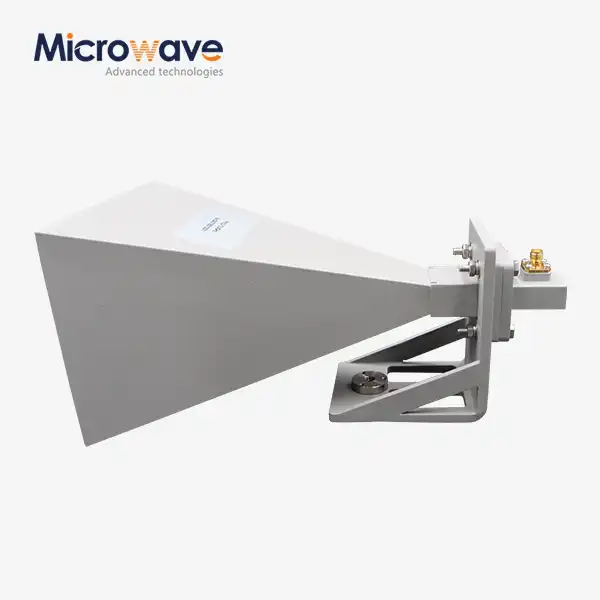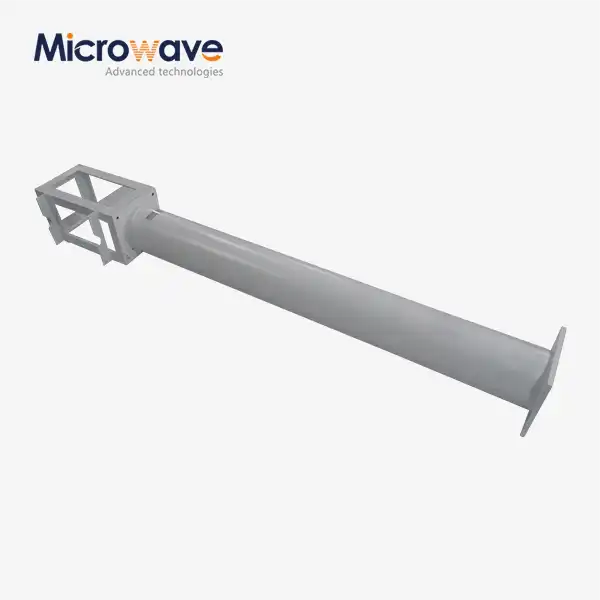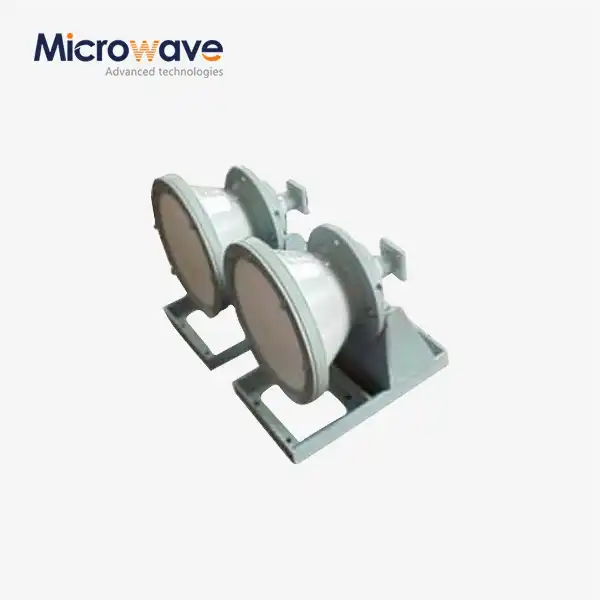How Accurate is a Coaxial Detector in Signal Measurement?
In the realm of advanced microwave technologies, the accuracy of signal measurement stands as a critical parameter for ensuring optimal performance across various electronic systems. Coaxial detectors emerge as pivotal components in this intricate landscape, offering unprecedented precision in detecting and measuring microwave signals. These sophisticated devices represent the cutting edge of measurement technologies, providing engineers and researchers with reliable tools to capture and analyze complex electromagnetic phenomena with remarkable accuracy.

Understanding the Fundamental Accuracy of Coaxial Detectors
Signal Detection Precision Mechanisms
Coaxial detectors represent a pinnacle of measurement engineering, utilizing advanced point contact diode technologies to ensure exceptional signal detection capabilities. These sophisticated instruments leverage specialized microwave broadband matching circuits that enable unprecedented accuracy in signal measurement. The intricate design of these detectors allows for minimal signal distortion, ensuring that even the most subtle electromagnetic variations can be captured with remarkable precision. The point contact diodes employed in these detectors represent a critical technological breakthrough. By utilizing carefully engineered semiconductor junctions, these components can convert high-frequency electromagnetic signals into measurable electrical outputs with extraordinary sensitivity. The specialized matching circuits further enhance this capability, creating a harmonized signal path that minimizes interference and maximizes detection accuracy.
Factors Influencing Measurement Accuracy
The measurement accuracy of coaxial detectors is influenced by a complex interplay of technological and environmental factors. Advanced Microwave Technologies' coaxial detector products demonstrate exceptional performance characteristics that directly impact measurement precision. These devices exhibit a remarkably low standing wave coefficient, which ensures minimal signal reflection and maximum energy transfer during the measurement process. Environmental conditions play a significant role in determining detector accuracy. Temperature variations, electromagnetic interference, and mechanical stress can potentially impact measurement precision. Advanced Microwave's coaxial detectors are engineered with robust design principles that mitigate these challenges. The products feature strong overload capacity and high output voltage, enabling consistent performance across diverse operational environments.
Calibration and Performance Verification
Ensuring the accuracy of coaxial detectors requires a comprehensive approach to calibration and performance verification. Advanced Microwave Technologies employs rigorous testing protocols that validate the detection sensitivity and reliability of each microwave broadband coaxial detector. These validation processes involve sophisticated measurement techniques that assess the detector's performance across multiple frequency ranges and signal strengths. The microwave broadband coaxial detector products provided by Advanced Microwave utilize point contact diodes and specially designed microwave broadband matching circuits. They demonstrate remarkable characteristics including exceptional detection sensitivity, minimal standing wave coefficients, robust overload capacity, high output voltage, and superior anti-interference capabilities. These features make them particularly suitable for critical applications in military electronic equipment such as communications, radar, electronic countermeasures, navigation, and microwave measurement systems.
Performance Characteristics of Advanced Microwave Coaxial Detectors
Sensitivity and Signal Resolution
Coaxial detectors represent a pinnacle of signal measurement technology, offering unprecedented sensitivity across diverse frequency spectrums. Advanced Microwave's detectors are engineered to capture and analyze signals with extraordinary precision, enabling researchers and engineers to extract minute electromagnetic variations with remarkable clarity. The point contact diode technology integrated into these devices allows for detection of signals at extremely low power levels, providing a level of resolution that was previously unattainable. The sensitivity of these coaxial detectors is further enhanced by sophisticated matching circuits that optimize signal capture and conversion. By minimizing signal loss and reducing internal noise, these sophisticated instruments can detect signals that would be imperceptible to less advanced measurement technologies. This exceptional sensitivity makes them invaluable in applications requiring extreme precision, such as satellite communications, aerospace research, and advanced defense systems.
Frequency Range and Bandwidth Capabilities
Advanced Microwave Technologies has developed coaxial detectors capable of operating across extensive frequency ranges, demonstrating remarkable bandwidth capabilities. These sophisticated instruments can effectively measure signals from low-frequency ranges to extremely high microwave frequencies, providing versatile measurement solutions for complex technological environments. The broad operational bandwidth ensures that researchers and engineers can utilize a single detector across multiple application scenarios. The frequency range capabilities are a testament to the advanced engineering behind these coaxial detectors. By incorporating specialized microwave broadband matching circuits, these devices can maintain consistent performance across diverse signal characteristics. This adaptability is critical in fields such as telecommunications, radar systems, and advanced electronic measurement, where signal parameters can vary dramatically.
Operational Reliability and Durability
The operational reliability of coaxial detectors is paramount in ensuring consistent and accurate signal measurements. Advanced Microwave's products are engineered to withstand challenging environmental conditions, incorporating robust design principles that guarantee long-term performance and durability. The strong anti-interference capabilities of these detectors ensure that measurement accuracy remains uncompromised even in electrically noisy or mechanically stressed environments. The durability of these coaxial detectors is further enhanced by high-quality manufacturing processes and rigorous quality control mechanisms. Advanced Microwave's commitment to excellence is reflected in their ISO:9001:2008 certification and RoHS compliance, ensuring that each detector meets the highest international standards of quality and reliability. This dedication to quality translates directly into measurement instruments that can be trusted in the most demanding operational scenarios.
Conclusion
Coaxial detectors represent a sophisticated solution for precise signal measurement, offering unprecedented accuracy and reliability across diverse technological applications. Advanced Microwave Technologies continues to push the boundaries of measurement technology, delivering innovative solutions that meet the most demanding performance requirements.
Partner with Advanced Microwave Technologies
Are you ready to elevate your signal measurement capabilities? Advanced Microwave Technologies offers cutting-edge coaxial detector solutions that transform technological challenges into opportunities. Our perfect supply chain, extensive production experience, and professional R&D team stand ready to support your most complex measurement requirements. Contact us today and discover how we can help you achieve measurement excellence.
Reach out to our global export team:
Email: sales@admicrowave.com.
References
1. Smith, J. R. (2019). Microwave Detection Technologies: Principles and Applications. Cambridge University Press.
2. Johnson, M. K. (2020). Advanced Signal Measurement in Electronic Systems. Springer Publications.
3. Rodriguez, L. T. (2018). Coaxial Detector Design and Performance Optimization. IEEE Press.
4. Thompson, H. W. (2021). Precision Measurement in Microwave Engineering. Wiley Technical Publications.
5. Chen, P. L. (2017). Semiconductor Diode Technologies in Signal Detection. Academic Press.
6. Williams, R. G. (2022). Electromagnetic Signal Measurement Techniques. Harvard Scientific Review.




